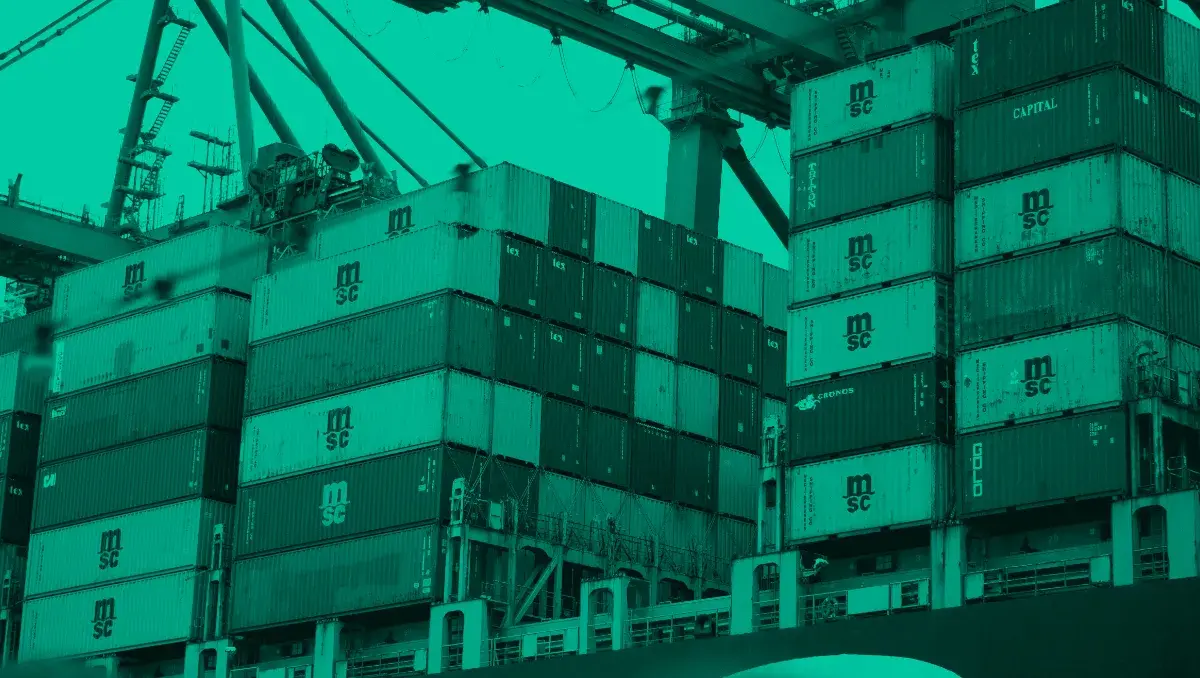
Moving essential goods or services across the country or around the world is an industry many people don’t give much thought to, unless of course a shipment is late or misdirected, or when geopolitical shifts alter the course of “normal” supplies. This critical function of modern life, with a market projected to near $31 billion by 2026, is not without risk or disruptions. And these risks can come in the form of data loss, data breaches, lack of transparency, or noncompliance.
The good news — supply chain leaders are proactively seeking to shore up their resilience. A 2024 report from the SMB Guide showed that cybersecurity and data privacy regulations are a big focus for supply chain leaders, with 52% indicating they are investing more in how they stay compliant with data protection laws. Technology like Managed File Transfer (MFT) can play a key role in this focus on better data security.
Data Privacy and Cybersecurity Concerns
Data is king in any industry, and with the supply chain’s digital emphasis, concerns about data privacy and cybersecurity are at the forefront, considering data breach and cyberattack risks don’t discriminate. Suppliers, manufacturers, warehouses, distributors, transportation firms, retailers and customers are all vulnerable.
“Modern supply chain operations need to strike a healthy balance between making data available and keeping that data confidential,” said Heath Kath, Lead Solutions Engineer, Fortra MFT. “Organizations need their sensitive, compliance-subject data such as financial transactions, proprietary designs, or customer information maintained and managed confidentially and with data integrity. A robust MFT solution can help make that happen and address concerns like compliance, data privacy, efficiency, and of course, security.”
Supply Chain Compliance Concerns
The very nature of global supply chains makes complying with data privacy standards a heavy burden as cross-border data transfers, multiple stakeholders, and a variety of data laws all come into play simultaneously. Organizations must take concrete, proactive steps, including strong encryption, to continually protect tracking numbers, product details, delivery addresses, and more.
Sharing this information most often falls under several compliance requirements, including The GDPR (General Data Protection Regulation), a privacy law that applies to organizations that gather, store, or handle personal data of individuals living in the European Union. Supply chains must also address requirements detailed for PCI DSS (Payment Card Industry Data Security Standard). This global set of security standards applies to any organization that stores, processes, or transmits payment card data, with a goal of reducing credit card fraud and protecting cardholder data. File encryption is a key element in compliance.
Supply chain protection doesn’t stop with encryption, however. MFT solutions integrated with both DLP (Datal Loss Prevention), Virus Protection, and Digital Rights Management can further strengthen file transfers operations.
4 Ways MFT Addresses Compliance
MFT plays a pivotal role in helping supply chain organizations meet compliance requirements by offering a secure, auditable, and automated framework for exchanging sensitive data across complex ecosystems. Here’s how:
- Centralized Control and Visibility: Robust MFT solutions like GoAnywhere MFT provide centralized credential management, user access controls, and certificate handling to help:
- Track and audit all file exchanges
- Restrict access based on roles
- Maintain visibility into third-party data flows
- Secure Data Exchanges: MFT encrypts sensitive data during transit as well as at rest, so that financial records, personal information, or proprietary documents are locked down. With GoAnywhere, organizations can integrate with other Fortra solutions to provide additional layers of threat protection and adaptive data loss prevention to keep sensitive data secure and easier to collaborate without malware entering your organization, or employees losing or mishandling data.
- Automation and Error Reduction: Automated file transfers reduce manual intervention, which can greatly help minimize the risks that come from human error by supporting:
- Scheduled and ad-hoc transfers
- Monitoring folders and files
- Notifications for success/failure
- Integration with cloud platforms and APIs
This automation is vital for meeting SLAs and regulatory timelines in logistics and financial operations.
- Support for Global Standards: MFT can help organizations comply with international regulations such as:
- NIS2 (EU cybersecurity directive): This EU-wide regulation expands and strengthens the cybersecurity requirements for critical sectors and supply chains by mandating stricter risk management, reporting, and accountability measures.
- DORA (Digital Operational Resilience Act): Also, an EU regulation, this act is primarily for the financial sector and requires firms to ensure they can withstand, respond to, and recover from disruptions and cyber threats through strict testing and resilience standards.
- PCI CP (Card Production and Provisioning standards): This set of requirements govern the secure manufacturing, personalization, and provisioning of payment cards to protect sensitive cardholder data and prevent fraud.
Each of these directives requires secure, resilient, and traceable data exchanges, which comprehensive MFT solutions can deliver, along with better efficiency.
MFT Can Address Operational Inefficiencies
By automating repetitive and error-prone and often manual file transfer tasks, MFT platforms like GoAnywhere streamline workflows through the solution's built-in schedulers, triggers, and monitors. These tools enable organizations to securely move files between systems or trading partners at scheduled intervals or in response to specific events, without the risks or time constraints of human intervention.
Automating these processes not only ensures consistency and reliability but also frees up staff to focus on higher-priority supply chain tasks, improving overall productivity.
Features such as automatic retries, real-time alerts, and centralized dashboards allow teams to monitor and manage transfers proactively, even in high-volume or latency-prone environments with greater efficiency.
And as mentioned, another efficiency boost comes from GoAnywhere’s ability to integrate with APIs and external applications, for more seamless communication between disparate systems and reduce the need for a daunting tech stack.
Read More: 7 Ways to Use APIs in GoAnywhere to Scale Deployment
With built-in encryption, audit trails, and compliance reporting, MFT not only streamlines operations but also strengthens data governance and regulatory alignment.
MFT Addresses Supply Chain Security Risks
“In the supply chain industry, where sensitive data such as purchase orders, invoices, and customer information flows across multiple systems and partners, MFT plays a critical role in mitigating security risks,” added Kath. “By leveraging advanced encryption standards like AES-256 and secure protocols such as SFTP, FTPS, and HTTPS, GoAnywhere MFT ensures that data in transit and at rest remains protected from unauthorized access and tampering. These protocols provide end-to-end security, preventing man-in-the-middle attacks, credential theft, and data leakage, all common threats we see in supply chain organizations still using legacy file transfer methods like FTP or email attachments.”
Access to data is also a huge risk – whether that access is internal or needed by partners. GoAnywhere supports robust key management practices, including key rotation and integration with HSMs or KMS systems, further strengthening data protection around the many sensitive files exchanged between partners each day.
MFT is a Secure Complement to Today’s Supply Chain
In today’s volatile supply chain market, where the potential for disruptions are around every corner, a secure and reliable MFT solution can offer some relief. With end-to-end encryption, centralized visibility, and automated file movement MFT can help ensure that sensitive data flows seamlessly without the risks associated with ad hoc transfers. GoAnywhere also can help organizations sustain trust with suppliers and customers throughout the process.
See How GoAnywhere Can Transform Your Supply Chain Operation
Schedule a personalized demo today to explore how MFT can streamline data exchange, strengthen security, and ensure compliance, all while boosting efficiency across your ecosystem. We’ll demonstrate to you how easy it is to automate workflows, eliminate manual errors, and build a more resilient supply chain.
